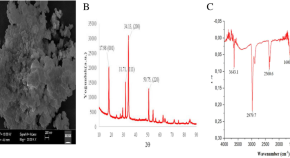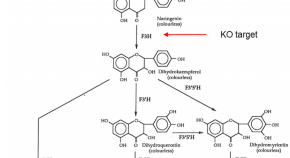Mitigation of drought stress effects on alfalfa (Medicago sativa L.) callus through CaO nanoparticles and graphene oxide in tissue culture conditions
Authors (first, second and last of 6)

Collection
Barbara Doyle Prestwich is Head of Plant Science at University College Cork, and is a Senator of the National University of Ireland. She is interested in the development of innovative tools in plant biotechnology for plant improvement. She has integrated the Sustainable Development Goals in both her research and teaching with the aid of the SDG Toolkit project at University College Cork.
Goetz Hensel is a molecular biologist by training, holding a PhD from the University of Braunschweig. Currently, he leads the Centre for Plant Genome Engineering at Heinrich-Heine University in Düsseldorf, Germany. His research interests include Agrobacterium-mediated gene transfer methods of crop plants such as barley, sunflower, and amaranth and targeted genome modifications using custom endonucleases such as clustered regularly interspaced short palindromic repeats (CRISPR/Cas). Furthermore, he is interested in producing pharmaceuticals in plants (molecular farming).
Vijay Kumar is currently working as Associate Professor in the Research and Development Cell, Lovely Professional University, Punjab, India. His research work focuses on the area of plant biotechnology including different aspects of plant physiology ranging from plant hormones, plant tissue culture, epigenetics of somatic embryogenesis, genetic transformation, secondary metabolite analysis and in vitro studies at molecular level.
Patricia Marconi is full professor of Botany at the University Maimónides and a researcher at the National Council for Scientific and Technical Research (CONICET), Argentine. Her research focuses on plant biotechnology, including genetic transformation, secondary metabolite production, and in vitro plant propagation. In recent years, the group has carried out studies on bioremediation processes with microalgae and plants to study their applicability in the management and rehabilitation of contaminated aquatic systems and for biomass production.
M. Margarida Oliveira is a Biologist with a PhD in Plant Biotechnology. After 23 yrs teaching at FCUL (1985-08), she joined ITQB NOVA where she was vice-Director (2011-23) and currently is full professor. She leads the Plant Functional Genomics Laboratory / Genomics of Plant Stress, focusing mainly on understanding and modulating the impact of environmental factors on plant development and quality. She also directs the Research Unit: “GREEN-IT Bioresources for Sustainability” comprising 120+ plant scientists from different Institutes. She explores and disseminates the tools that can help designing more efficient crops.
Wagner Campos Otoni is full Professor at the Plant Biology Department/Federal University of Viçosa (Brazil) for 29 years. Associate Editor of several journals including Plant Cell Tissue and Organ Culture. Supervised 38 Master degree and 63 Ph.D students and 11 post-docs, and was Coordinator of the Graduate Program in Botany (2001-2009). Consulting member of various Scientific Agencies from the Brazilian Government, and member of the Commission for Biosafety (CIBio/UFV). Visiting Scholar at Plant and Microbial Biology Department (University California – Berkeley, 2010) and Department of Biology (University Pennsylvania – Philadelphia, 2018).
Bart Panis, PhD, is a principal scientist dealing with Biodiversity for Food & Agriculture and Banana Genebank Manager for the Alliance of Bioversity International and CIAT. His interests include cryopreservation and the development of embryogenic cell suspensions, protoplast culture and genetic engineering of banana, having developed the world’s largest banana cryobank. He also developed droplet-vitrification. His work on coconut led to a novel (patented) technology for axillary shoot multiplication. Bart is involved in projects on conservation of wild bananas and gene editing.
Sergio Ochatt is a senior scientist at INRAE with more than 40 years’ experience in plant biotechnology. He is Editor-in-Chief of PCTOC. Studied fruit tree and ornamental woody species until 1996, works on grain legumes since. Some landmark team results include: first regeneration from deciduous fruit tree protoplasts; electroporation effects on DNA synthesis and regeneration; selection and recovery of salt/drought tolerant plants; double haploids in legumes; transformants and RNAi in legumes; genotype cytological, molecular and flow cytometry characterization. He is also interested in secondary metabolite production.

